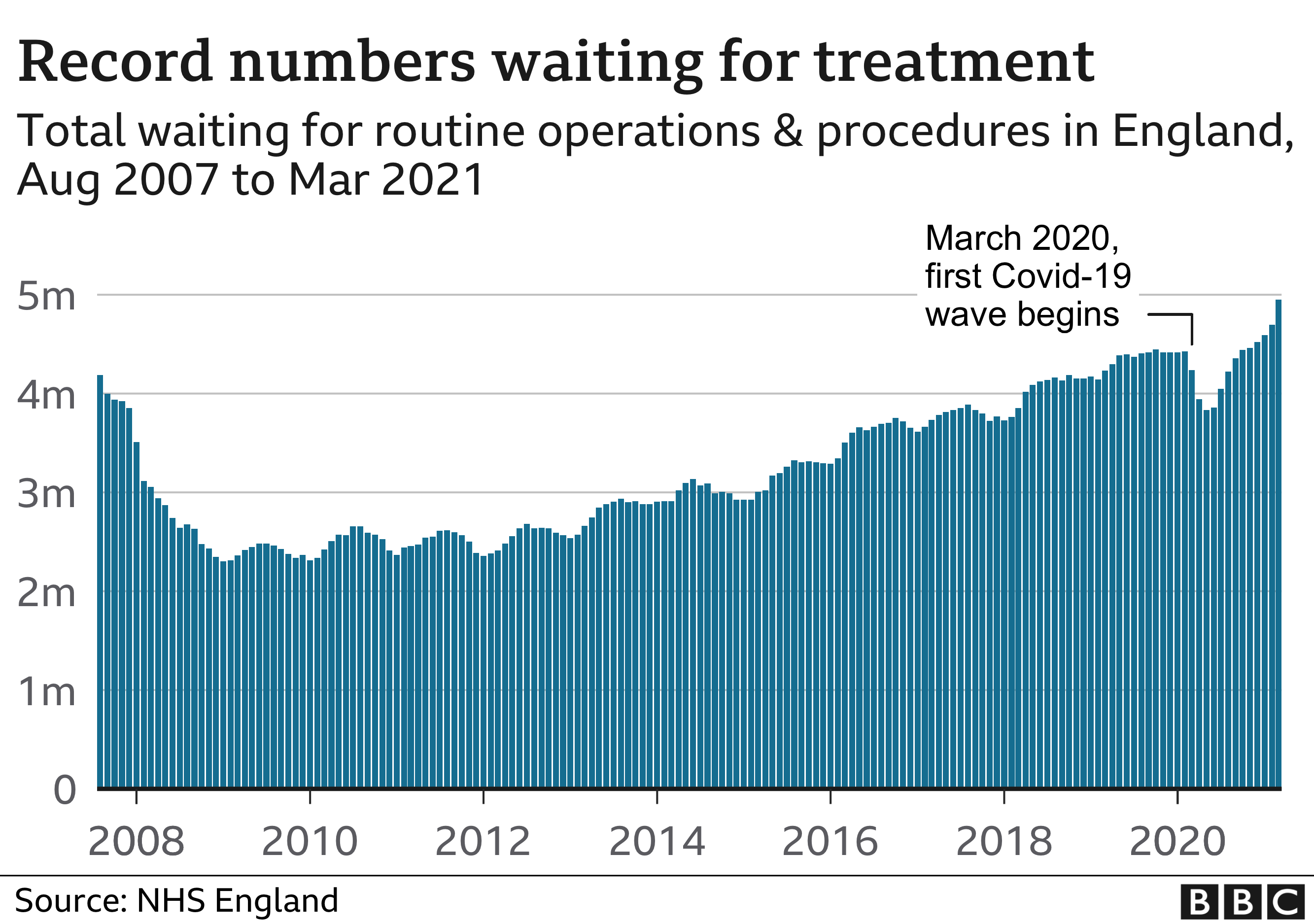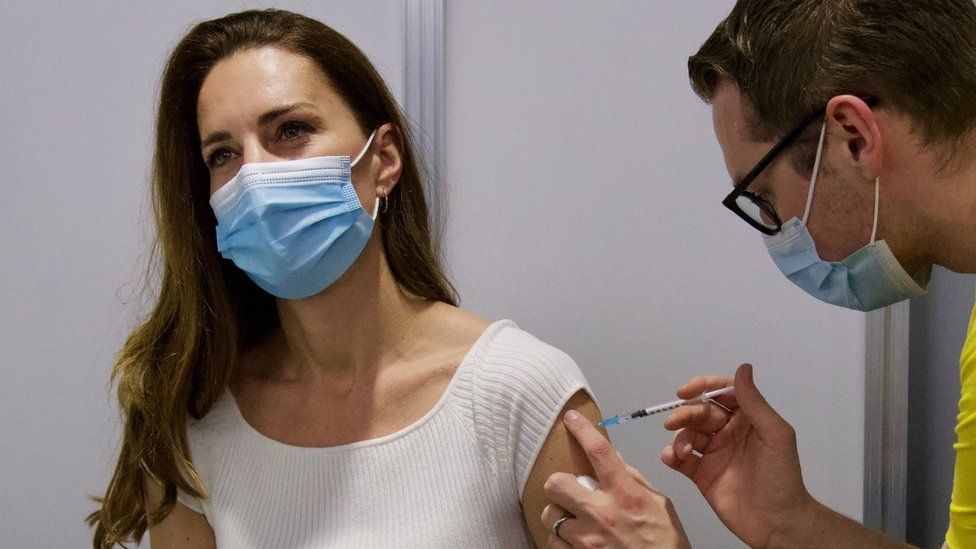The head of NHS Providers has said “very, very few” Covid patients in hospital in England have received two coronavirus jabs – showing the vaccines provide “very high” levels of protection.
Chris Hopson said patients tended now to be younger – meaning there was a lower need for critical care.
But he said it was “incredibly striking” how busy hospitals were, as they deal with non-Covid backlogs.
Trusts were going “full pelt”, he said.
Meanwhile, Vaccines Minister Nadhim Zahawi has confirmed that the government is considering making coronavirus vaccines compulsory for NHS staff.
NHS staff have been eligible to receive a jab since the first phase of the vaccine rollout – but the fact that there is no requirement for them to take up the offer despite working with patients on a daily basis has become a widely-debated issue.
Mr Zahawi told BBC One’s Andrew Marr Show: “It would be irresponsible of us as government and ministers not to ask that question.”
He added that surgeons have to be vaccinated for Hepatitis B “because there is a responsibility to protect those that are most vulnerable”.
Mr Hopson said that trusts are seeing more patients who put off treatment in the pandemic – and who now require more complex care and longer stays.
There are 870 coronavirus patients in hospital in the UK, latest government figures show, compared to the peak of 39,249 in January.
“More informed debate” was needed over ending coronavirus restrictions in England on 21 June, Mr Hopson added.
Mr Hopson said he had spoken to heads of NHS trusts in hotspot areas in the past 48 hours, with one trust seeing 47 coronavirus patients on Saturday, compared to 49 the day before.
In comparison, the trust had 170 coronavirus patients during last November’s peak.
A “handful” of patients in hospital had received both vaccination doses, but they usually have additional conditions, he added.
About five million patients were waiting for surgery in England in March – the highest figure since modern records began.
NHS England figures show that more than 436,000 people were waiting for more than a year, compared with 1,600 before the pandemic.
A similar picture is emerging across the devolved nations.

Meanwhile, writing in the Observer, Labour leader Sir Keir Starmer said government “incompetence” is putting the end of restrictions at risk – after “weak, slow decisions” allowed the Indian variant to gain a foothold in several UK hotspots.
Boris Johnson and ministers were too distracted by “covering their own backs” and “civil war” following accusations by former adviser Dominic Cummings, Sir Keir said.
He said Mr Johnson’s refusal to take action before the second wave led to “avoidable and unforgivable” deaths and “mistakes were being repeated” as cases begin to rise again.
The prime minister has previously denied that people died needlessly, saying the government faced “incredibly difficult” decisions but always aimed to protect lives.

Health Secretary Matt Hancock said the UK was making “fantastic progress” in vaccination, with 53% of 30 to 39-year-olds having had their first dose in just over two weeks.
He said the research on the vaccine’s effectiveness against variants was also “encouraging”. “Vaccines are saving lives, are safe, effective and our way out of this devastating global pandemic,” he said.
On Saturday it was revealed the Duchess of Cambridge is among the 39 million people in the UK who have now received at least one jab.
Nearly three-quarters of the adult population have had their first dose, while almost 25 million people have received their second dose.
But while the UK has some of the highest levels of vaccination in the world, confirmed cases, admissions to hospital and deaths have all risen over the last seven days.
On Saturday, the UK reported 3,398 new confirmed cases, 7 deaths and 133 hospital admissions. Over the last seven days, the number of people testing positive has risen by 23%.
The NHS continues to urge the clinically vulnerable and people aged 50 and over to bring forward their second dose to help tackle the spread of the B.1.617.2 variant.
Source: BBC

